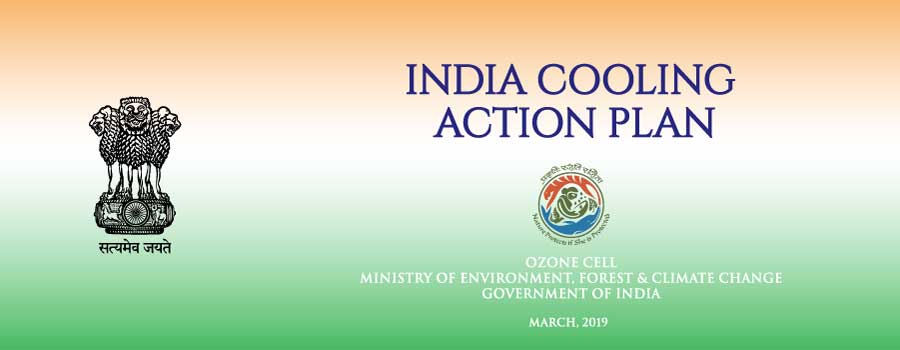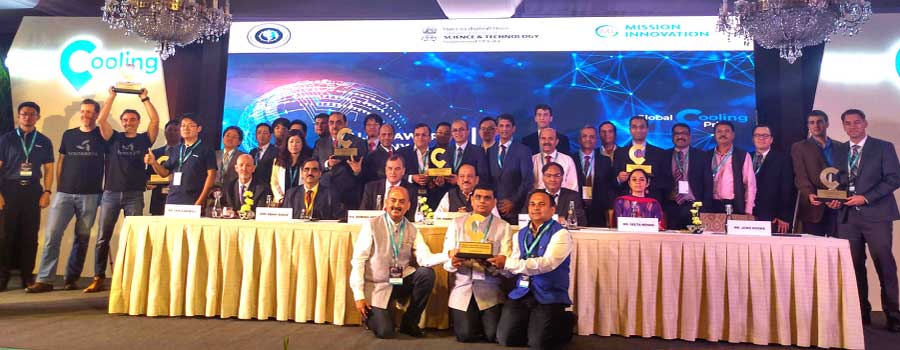India Cooling Action Plan

The India Cooling Action Plan (ICAP) provides a 20-year outlook on how cooling demand in India will evolve and grow across multiple sectors, and outlines strategies and actions to develop a robust ecosystem that promotes sustainable and smart cooling practices across the nation while mitigating adverse impacts. The India Cooling Action aims to (i) reduce cooling demand across sectors by 20% to 25% by 2037-38, (ii) reduce refrigerant demand by 25% to 30% by 2037-38, (iii) Reduce cooling energy requirements by 25% to 40% by 2037-38, (iv) recognize “cooling and related areas” as a thrust area of research under national S&T Programme, (v) training and certification of 100,000 servicing sector technicians by 2022-23, synergizing with Skill India Mission. For the development of ICAP, AEEE has supported the Ministry of Environment, Forests, and Climate Change (MoEF&CC) in conducting the background analysis, compiling and collating relevant chapters developed by Thematic Working Groups and finalization of the India Cooling Action Plan for publication. AEEE has been the lead knowledge partner of MoEF&CC and continues to be involved in ICAP implementation through its various activities.
Global Cooling Prize

Global Cooling Prize is an innovation competition instituted by the Department of Science & Technology (DST) under the Mission Innovation along with Rocky Mountain Institute and administered by RMI, AEEE, CEPT University, and Conservation X labs to develop a climate-friendly residential cooling solution that can provide access to cooling to people around the world without warming the planet. This groundbreaking competition aimed to incentivize the development of an innovative residential cooling solution that will have at least five times (5X) less climate impact than standard Room Air Conditioners (RAC) units in the market today. The impacts are affordable access to cooling in the residential sector, 5,900 TWh/year avoided demand in 2050, and the potential to mitigate 0.5°C of global warming by 2100. AEEE, along with other partners, has supported DST and RMI in administering this innovation challenge through overall design, planning, outreach, and marketing of the Global Cooling Prize and by serving on the Operating Council.
Solar Decathlon India

Solar Decathlon India is an initiative to create the next generation building industry workforce to combat Climate Change. The Alliance for an Energy Efficiency Economy (AEEE) and the Indian Institute for Human Settlements (IIHS) are jointly conducting the Solar Decathlon India, under the aegis of the Indo-U.S. Science & Technology Forum (IUSSTF). The competition will reach out to 5,00,000 students across India, and invite them to design net-zero-energy-water-waste buildings that are also resilient to climate change impacts. The student teams will develop affordable and market-ready solutions for real building projects by partnering with developers, clients, or other real estate proponents. We encourage teams to partner with industry to implement innovative solutions. The challenge provides a platform for academic institutions and helps students stay a step ahead in responding to climate change. The challenge features a set of ten contests areas, hence called Decathlon. The selected finalist teams will present their solutions to jurors and display it to industry, investors, and government officials to move the construction sector toward these solutions.